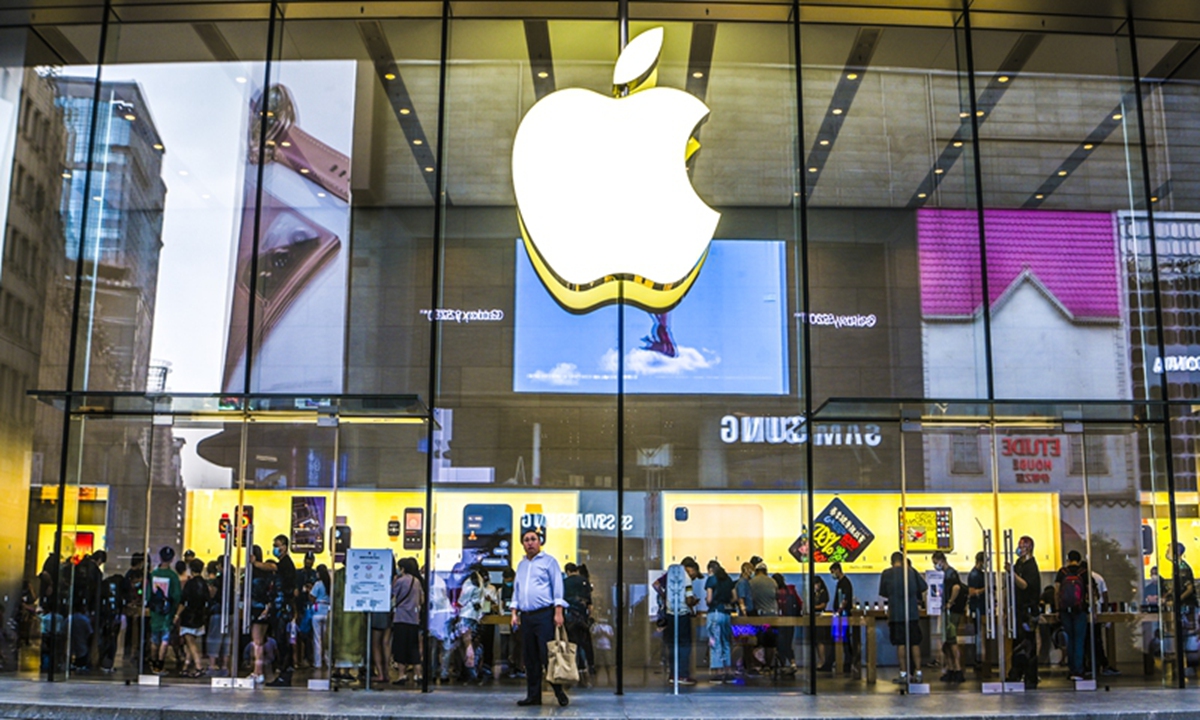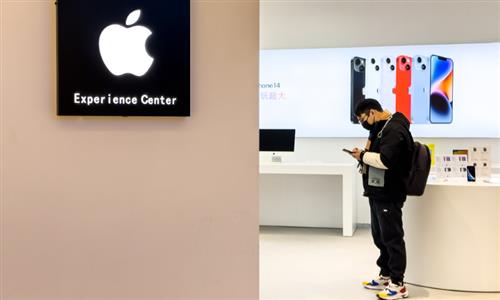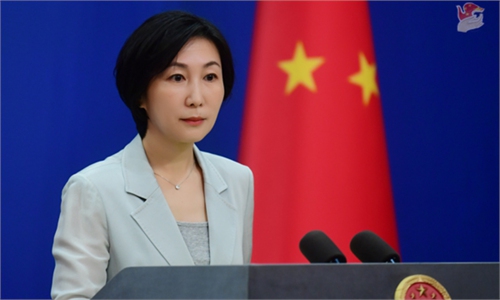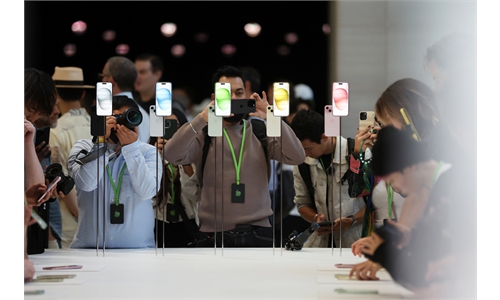
A flagship store of Apple in Shanghai Photo: VCG
As the first $3 trillion company in corporate history, Apple has kept setting new records in terms of revenue, profits, and market capitalizations. However, it also faces one lingering question: how to face competition induced by innovation? Today, a turning point appears to have been reached.Apple's share price dipped 1.7 percent on Tuesday as the company launched iPhone 15 at its flagship product event. On the eve of Apple's launch of the new iPhone 15 series, JPMorgan Chase lowered the firm's price target from $235 to $230.
"Are there material upgrades with iPhone 15? No." JPMorgan Chase analysts wrote in a report.
In recent years, every new Apple product launch has lacked major innovation and was only making incremental performance-related optimization, which seems to have become the norm. This year's autumn release seems to have caused greater uneasiness in the market, which is related to the outstanding performance of peer competitors' innovation. In a technology industry led by innovation, the problems Apple faces are essentially innovation-caused problems.
Innovation is always the magic weapon for the success of high-tech enterprises, and it is also the value of excellent enterprises. Facing fair competition and winning through open competition is the fundamental path for the development of world-class high-tech firms. As a pioneer in the smartphone industry, Apple has achieved innovative breakthroughs in many aspects in the past 10 years, but its innovation intensity has significantly weakened.
Apple's home base in the US market has largely benefited from the US government's political xenophobia. The US is actually the least competitive mobile phone market in the world. Multi-level "protectionism" has allowed Apple to account for more than half of the US market share, as high as 53 percent. At the same time, Apple has achieved strong growth in the Chinese market in the past two years.
The second quarter global smartphone revenue and operating profit report drawn up by a market research company shows that although Apple has only 17 percent of the global market share, it accounts for 45 percent of the revenue. It alone has taken away 85 percent of the profit of the global smartphone industry. Apple is the dominant player, while the global smartphone market has become distorted.
As the biggest beneficiary of the US cutting off chips to Huawei, Apple's market value exceeded $2 trillion and again $3 trillion in 2020 and 2022, respectively. It can be said that this was in part due to non-market forces driven by the US government.
Apple has become accustomed to the comfort zone of a long-term uneven playing field. Although this is not the complete picture of Apple's past success story, it is indeed a factor that cannot be ignored. But this model will inevitably become unsustainable as market competition comes increasingly fiercer.
The "Apple tax" that overwhelms global application developers has become one of the focuses of antitrust concerns around the world. In early July, the European Parliament passed the Digital Markets Act, which aims to ensure fair competition. In September, the European Commission announced a list of large companies that must comply with stricter regulations in the future under the act, and Apple is on the list of six companies.
As the framework for Internet antitrust continues to improve, competitors in the high-end market continue to innovate, and a new wave of technological innovation led by AI continues to advance, the Apple has to eventually step out of its comfort zone and return to the path of creativity and innovation.
Apple's technological innovation capabilities have amazed many consumers, and many people are still looking forward to the firm delivering future breakthroughs. Maintaining competitiveness through innovation is not only the fundamental path for Apple's long-term development, but also something that the entire technology industry welcomes.
Putting aside political intervention, protectionism and market monopolies, and letting innovation and fair competition lead future development would be a much needed shot in the arm for the global smartphone industry.
The author is Executive Director of the International Communication Research Center of Zhejiang University, the Director of Wuzhen Digital Civilization Research Institute. bizopinion@globaltimes.com.cn



